German Shorthaired Pointer
The German Shorthaired Pointer is a versatile hunting dog breed that originated in Germany. It was traditionally used to hunt different game and it has great retrieving skills from both land and water. The German Shorthaired Pointer, or GSP, is one of the most popular dog breeds for hunting as well as for companionship.
This breed is a great fit for people that live active lifestyles or have a large yard that allows the GSP to roam around, explore, and spend their large amount of energy.

Height:
21-25 in (53-64 cm)

Weight:
45-70 lb (20-32 kg)

Origin:
Germany

Life Expectancy:
10-12 years
Dog Breed Characteristics
The German Shorthaired Pointer’s characteristics are those of a typical Pointer breed. These dogs have a noble and dignified appearance. Their build ensures their strength, speed, and, most of all, endurance. These dogs have smooth outlines and shiny coats.
The German Shorthaired Pointer’s nose is usually brown in color, and its muzzle is broad, long, and deep. They have medium-sized eyes with tight-fitting eyelids and are usually dark brown in color. Their ears are broad and set high on their head. They fall flat and should never be twisted.
The GSP’s body is firm and strong. They have well-defined muscles and strong legs. Those traits were carefully bred and promoted in this breed with the goal of producing the ultimate hunting dog breed.
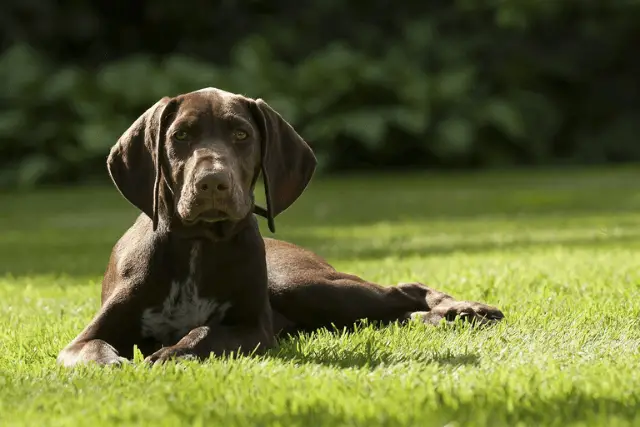
Grooming
German Shorthaired Pointer has a short water-repellant coat. Their coat is easy to maintain and doesn't shed a lot. Weekly brushing will do the trick and keep these dogs looking good.
German Shorthaired Pointer coat colors:
- solid liver
- combination of liver and white – liver and white ticked, liver patched and white ticked, liver roan

The rest is basic care; trim their nails when needed (if they don't wear them down naturally), brush their teeth weekly to prevent tartar buildup and bacteria development. Regularly check their ears for any sign of redness or a bad odor that can indicate an infection.
You can wipe their ears with a cotton ball dipped into an ear cleaner. The key for your dog to get used to all things mentioned above is to start early with them. Make a positive experience for the dog, full of praises and rewards, and you can be sure that your dog will enjoy all these things when they grow up.
German Shorthaired Pointer temperament
The German Shorthaired Pointer is never shy or aggressive. They are usually very friendly and enthusiastic about anything they do. They were bred as a hunting breed, but this is a hunting breed that needs to live inside with humans. They are prone to separation anxiety and hate to be left alone for too long.
The German Shorthaired Pointer’s temperament is playful and alert. They seem very interested in everything that is going on around them and they are especially interested in any animal that is in their yard or wherever they go.
These dogs make great companions and pets. They will have enough love and affection for their whole family but will most likely choose a single person they will care about the most and that will be their true owner.

GSP training
When approaching the German Shorthaired Pointer training, it is important to know that they are very trainable but can be demanding, especially when they are between the ages of 6 months and three years. They are intelligent and quick learners, but only if they respect you as their leader.
Train your dog in a positive way by rewarding good behavior with praises, treats, and food. You will achieve the status of someone with great resources, and the dog will immediately respect you for it. Do not use fear, pain, or punishment as a training method because that can result in shyness, aggressiveness, and all-around bad behavior. Instead, correct their bad behavior in a non-threatening and calm way.
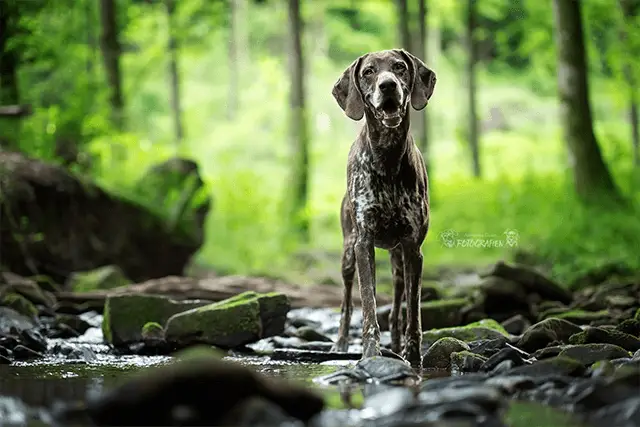
German Shorthaired Pointer socialization
All dog breeds require early socialization, and German Shorthaired Pointers are no different. They learn social hierarchy and roles similar to humans. We would observe and try to explain something to ourselves, and we should help our dog observe proper social behavior.
One of the best ways to achieve that is to expose your dog to different situations, sights, sounds, people, and other dogs as soon and as often as possible. That way, your German Shorthaired Pointer puppy will learn how to properly handle itself in any new situation it could find itself in.
Health problems
The German Shorthaired Pointer is generally considered a healthy breed, but they are prone to some health issues and concerns like any other dog breed. These dogs have an average lifespan of 10-12 years.
When getting any breed, the breeder must show you the health tests that they have done for their breeding dogs. Dogs must be adequately tested because taking a chance and hoping that the puppy’s parents are healthy is a risk no one should ever take.
Only healthy dogs should be bred because that is the only way to ensure that bloodlines will remain healthy and without any problems. Health problems associated with this breed are;
- Hip dysplasia - Genetic problem affecting hips resulting from an improperly formed hip joint.
- Entropion - A defect causing the eyelid to roll inward.
- Canine cancer - Just like humans, dogs can get cancer as well. Treatments include chemotherapy, medication, and surgery.
- Gastric Torsion - Also known as bloat. A dangerous condition that causes the stomach to twist (torsion).
- Von Willebrand's Disease - Problem with blood clotting, can affect humans and dogs.
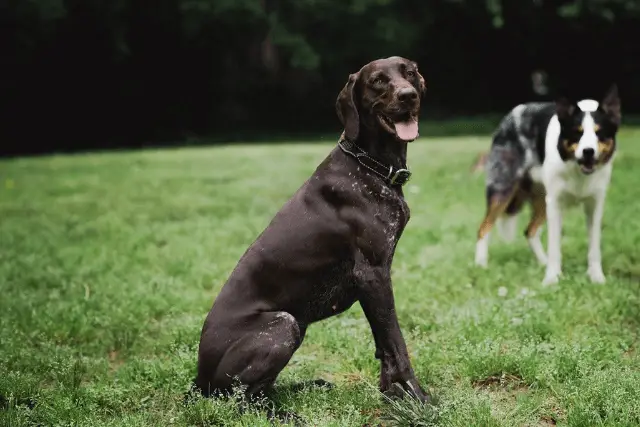
To be sure that your dog will be healthy, always buy him from a responsible dog breeder who regularly tests their breeding dogs to secure that their puppies will be healthy as well.
Breeders
When getting a dog, the most important thing is to get it from a responsible and reputable German Shorthaired Pointer breeder. Responsible breeders will breed dogs that don’t only look good but have great characters as well. You must find a good German Shorthaired Pointer breeder that can help you learn about this breed and make an informed choice about getting a dog with these characteristics.
You will need to dedicate your time and energy to training and socialization if you want to end up with a dog you can control. If you have any questions or doubts, any good breeder will welcome your questions because they also want their puppies to go into a good home.
When you bring your new puppy home, start with the training and socialization immediately. By doing so, you will end up with a well-behaved dog whom you can trust. If you devote your time and energy to this dog, you can be sure that you will end up with a companion for life.

SEARCH GERMAN SHORTHAIRED POINTER BREEDERS
World Dog Finder team

Updated at31.08.2023.
Breed History
German Shorthaired Pointer was created as multipurpose hunting dogs, and they were very good at their job. The first German Shorthaired Pointer was imported in the US in 1925 and in 1930 this dog breed was officially recognized by the AKC.
Today these are very popular dogs around the world and especially in the US.

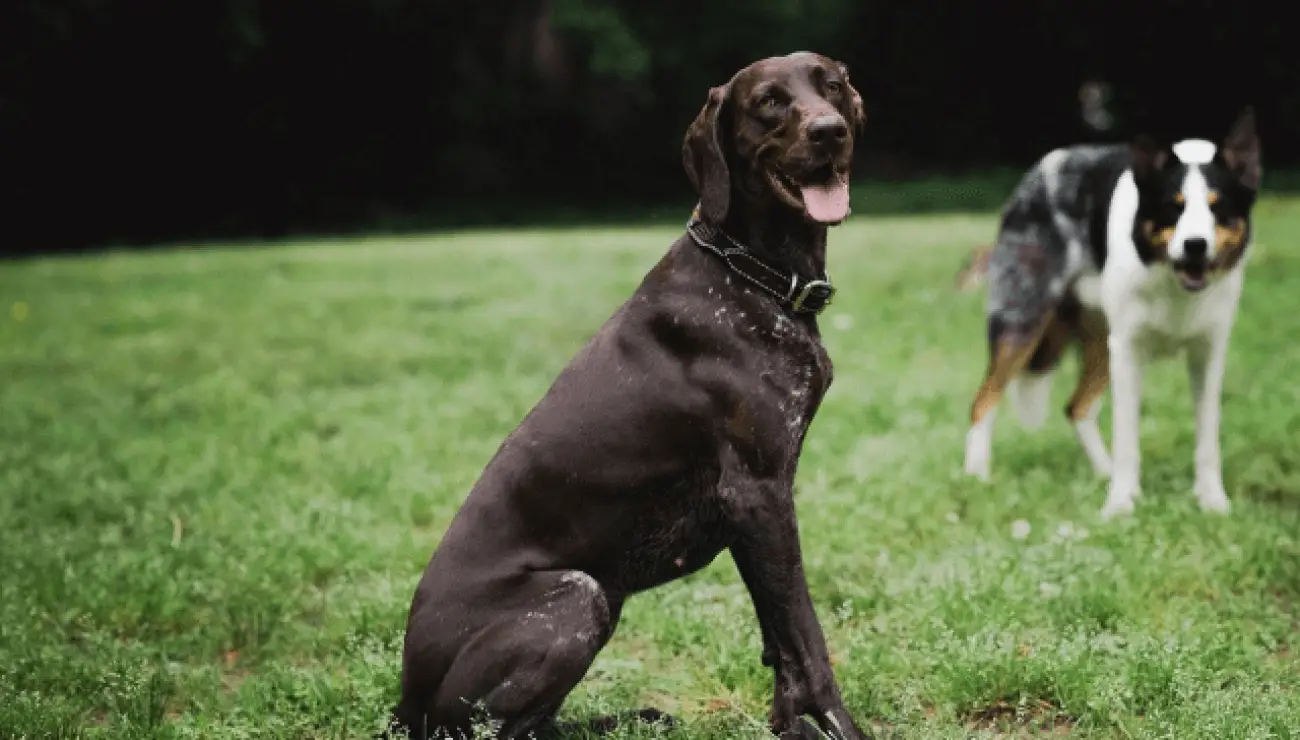
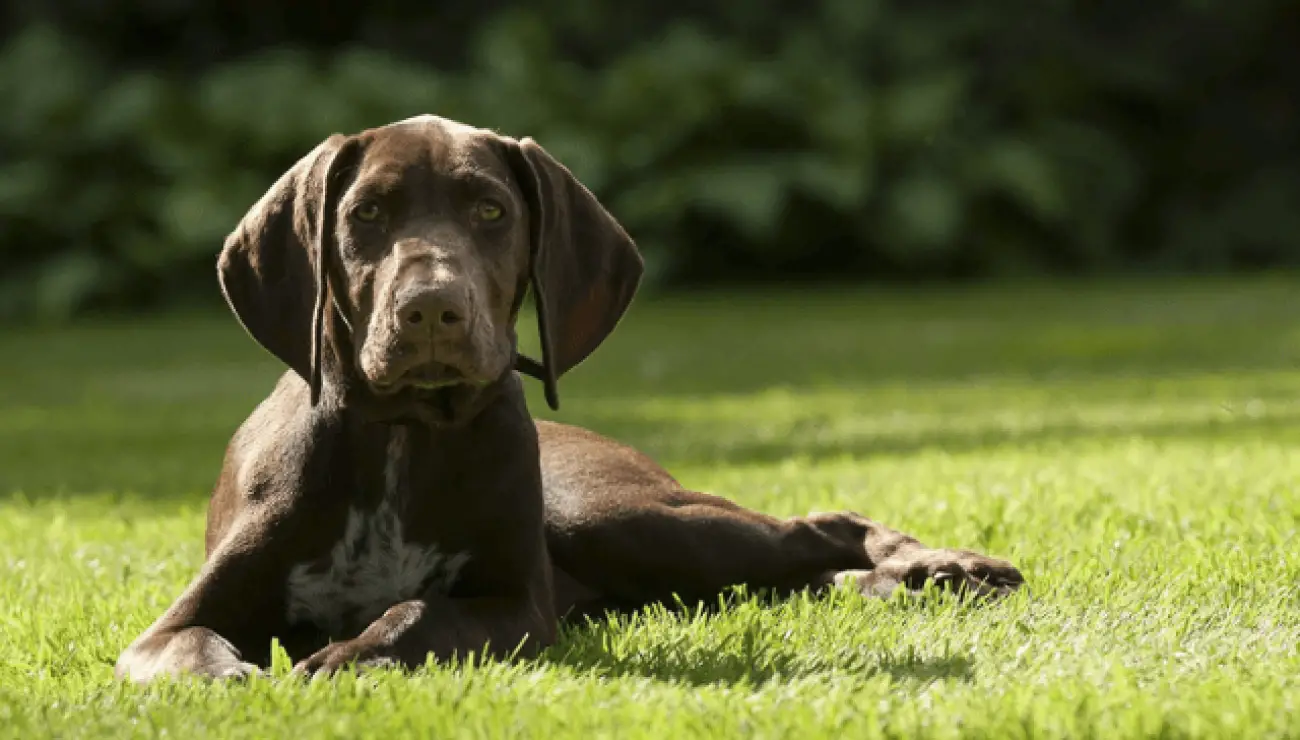
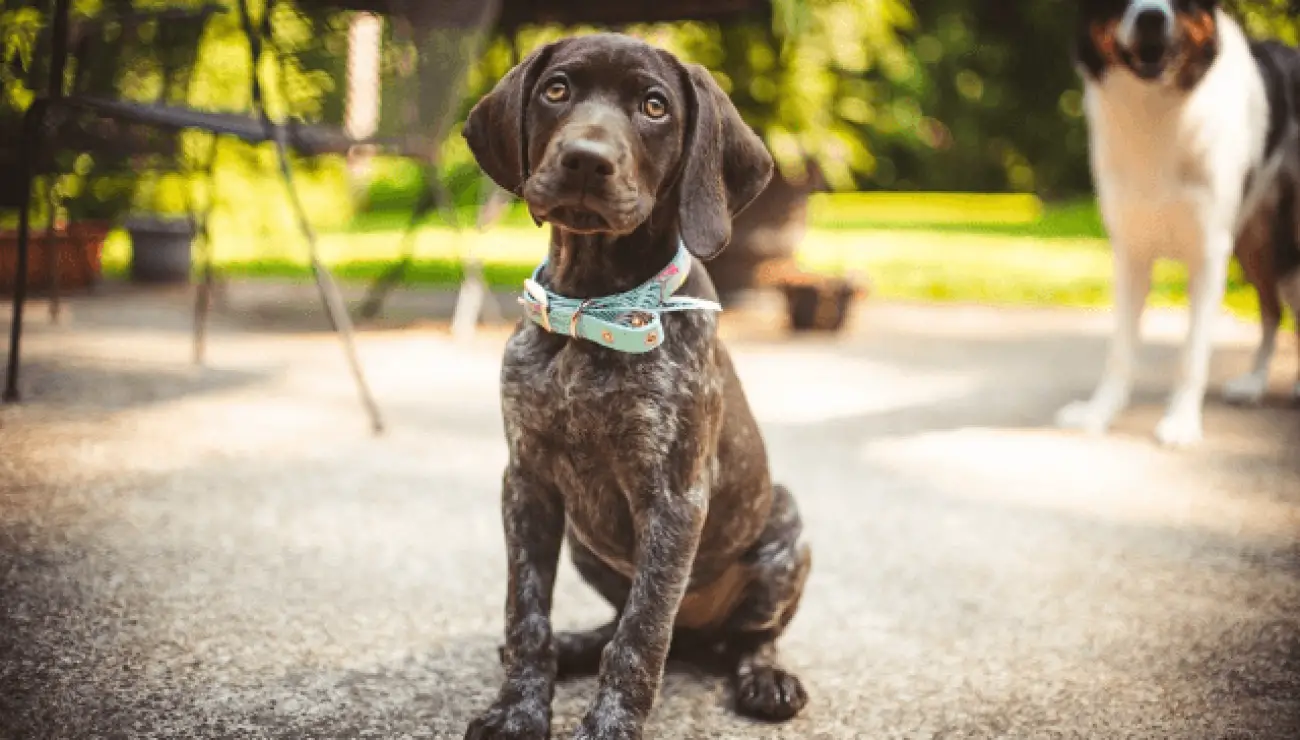
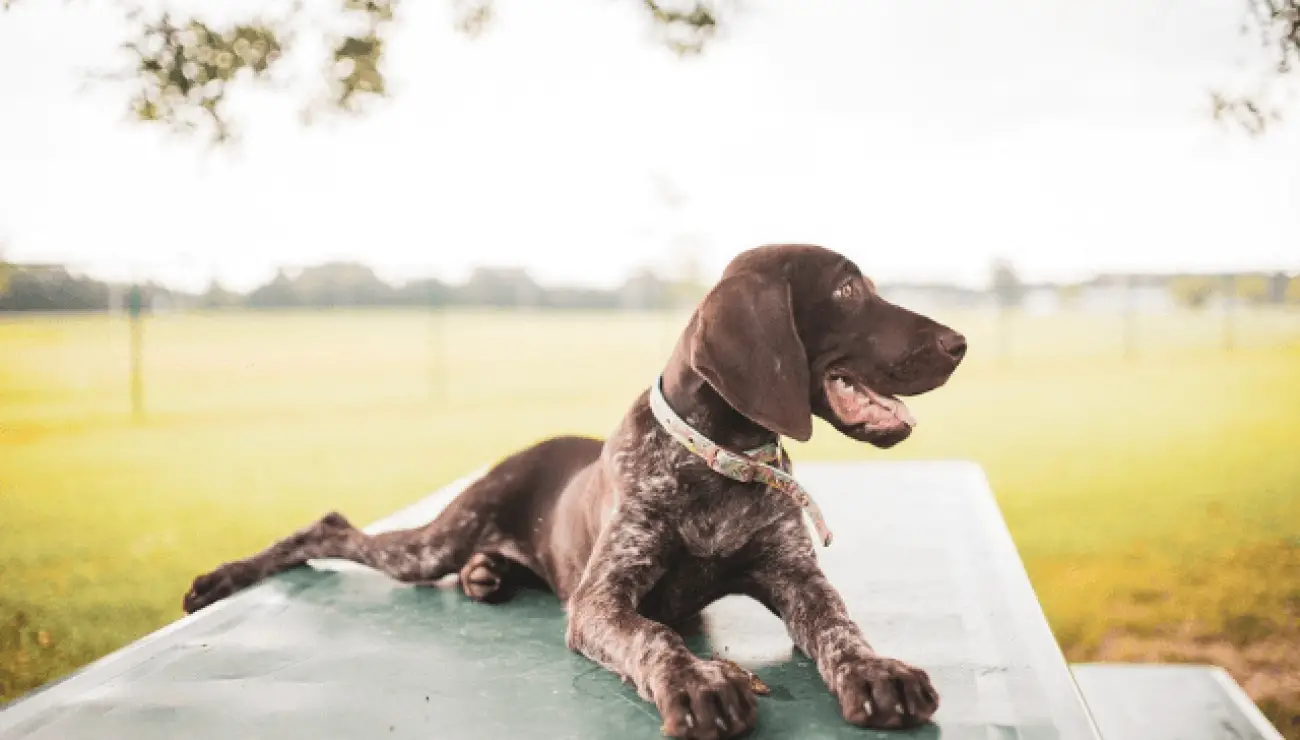



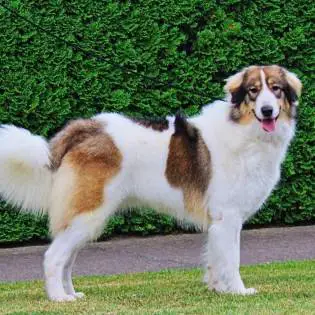

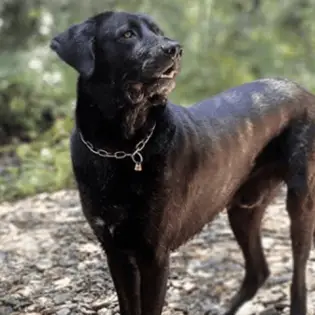



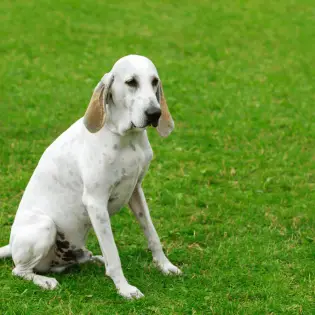


Share